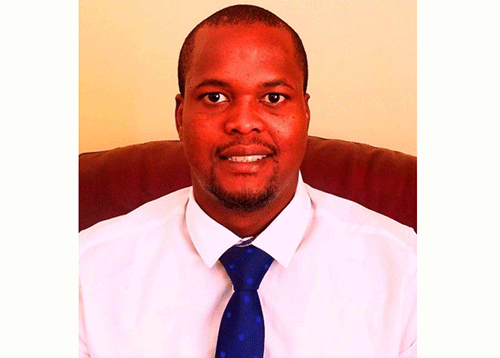On 6 July 2021, the First Lady of Namibia, Monica Geingos announced on her Twitter feed that her office had partnered with experts to publish weekly updates that analyse and report on the Civd-19 situation in Namibia.
In a weekly review for the period dating 27 June to 3 July, Seodhna Keown and Nandago Kauluma present a graphical interpretation of people being tested for Covid, infection rates (people testing positive for Covid) and the positive ratios, amongst other graphical depictions. The importance of data gathering, interpretation and analysis during this unprecedented period in time cannot be over-emphasised.
Not as an end in itself but rather as a facilitator for sound decision making. By using this very important branch of public health science to analyse and interpret information as it comes in, the ministry of health is better equipped at responding and deploying resources to where they are needed most.
During the past couple of days, Namibia has witnessed how the epidemic (within Namibia) has shifted its epicentre from the centrally located Khomas region to the neighbouring Omaheke region in the central east.
By collating data gathered in previous weeks, scientists are able to bring together different information.
Allowing for the similarities and differences of how the virus attacks different populations to be analysed and understood.
Epidemiology, the scientific, systematic and data driven study of distribution, frequency and patterns of health related states can be used in understanding how the virus behaves in different ethnic, socio-economic and cultural groups; (by cultural groups the author refers to rural/urban as different cultural settings).
In an audio recording circulated before his death, the paramount chief of the Ovaherero Vekuii Rukoro can be heard making a heartfelt plea towards his subjects.
Urging them to change their cultural norms and practices relating to huge public gatherings during this period in time, when the country is experiencing the third wave of increased infections.
Could this be the reason (public gatherings) why the disease has shifted epicentre from Khomas to Omaheke?
Only the data can tell us that.
The data can also tell us what needs to be done. In new measures and regulations announced by the head of state, the President announced a limit on public gatherings as an effort to decrease the spread and transmission rate of the virus. One of the health measures that have proven to curb the spread of Covid-19 is the adjustment of human behaviour, according to official sources.
From the evidence seen in videos circulating on social media, the President’s pleas are still being ignored by certain groups of people.
One of the questions posed to the First Lady on her #LOVEProtects #DoYourPart campaign that she is facilitating is: “Are religious and traditional leaders and members of the Ovaherero and Coloured communities more affected by Covid-19 fatalities?”
Only data science can answer that question through the use of epistemology. ‘Epistemology is the theory of knowledge, especially with regard to its method, validity, scope and the distinction between justified belief and opinion’. Only data science can answer the question that the late Ovaherero paramount chief is insinuating, the same question the person asking First Lady is posing of ‘whether the coronavirus disproportionally affects certain ethnic groups in Namibia compared to others’.
Public health science is an academic track of knowledge that focuses on disease prevention with the objective of increasing a population’s life expectancy.
In addition to disease prevention; public health science also concerns itself with the promotion of health through informing and equipping populations with the necessary tools to prevent disease outbreak; manage disease outbreak and deal with the aftermath of a disease outbreak. Public health science uses a multi-disciplinary approach of incorporating epidemiology, biostatistics and health sciences in order to improve and ensure positive health outcomes for entire societies. This multi-disciplinary approach makes use of information systems to collect, store, analyse collate and mine data to gain a greater understanding of the behaviour of a particular virus or disease outbreak. As the virus continues to spread, it will be interesting to observe how government makes use of data gathered in efforts to mitigate the negative impact of the pandemic.
Previously, the ministry of health only made available raw data in the form of tallies depicting the number of deaths, gender distribution, the absence or presence of comorbidities amongst the deceased, their age and whether they had been vaccinated or not.
Much more data needs to be gathered in order to understand the patterns the disease follows and for government to react accordingly.
Covid-19 patients with underlying health conditions and comorbidities are said to be at greater risk of dying than those who do not have underlying health conditions.
But this assertion has not been proven through statistical analysis and display to motivate people to make better lifestyle choices.
Other theories floating around are that socio-economic factors don’t play a role in health outcomes for Covid-positive patients and that the rich and the poor are on equal footing with regard to Covid exposure. Only statistical analysis through data collection and interpretation can prove those assertions.
The importance of data science during a pandemic is crucial in understanding the virus, in order to mitigate the virus and help bring an end to the virus which is currently the number one public health concern across the globe.


